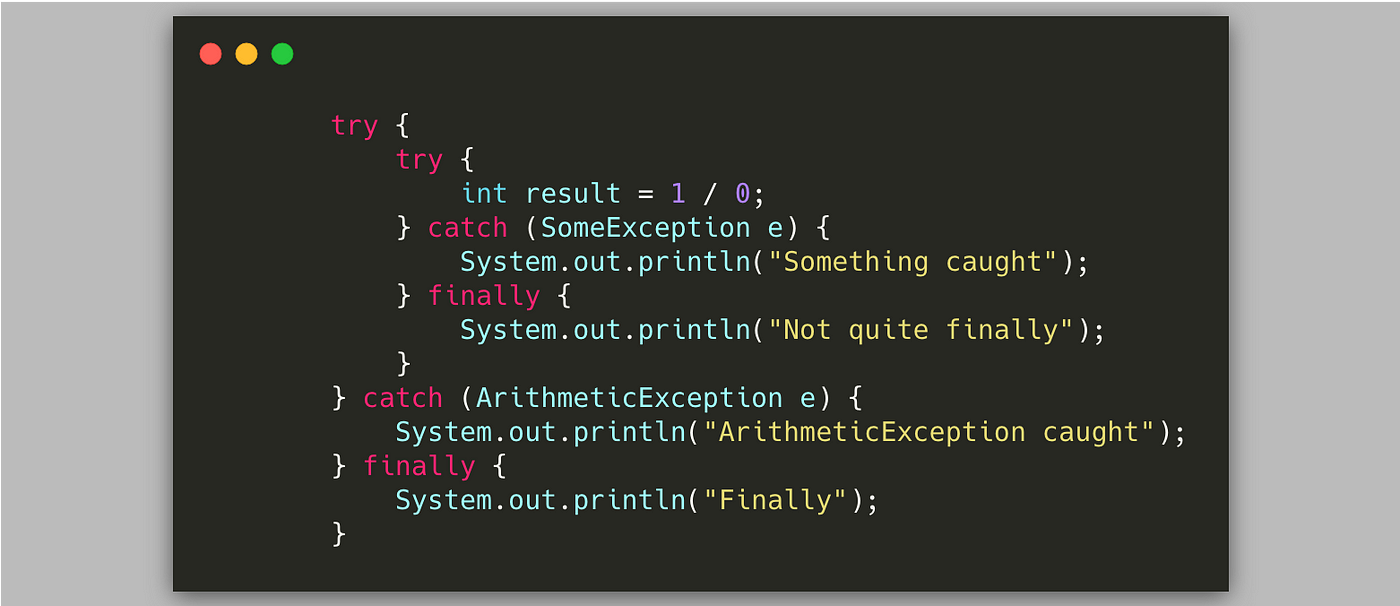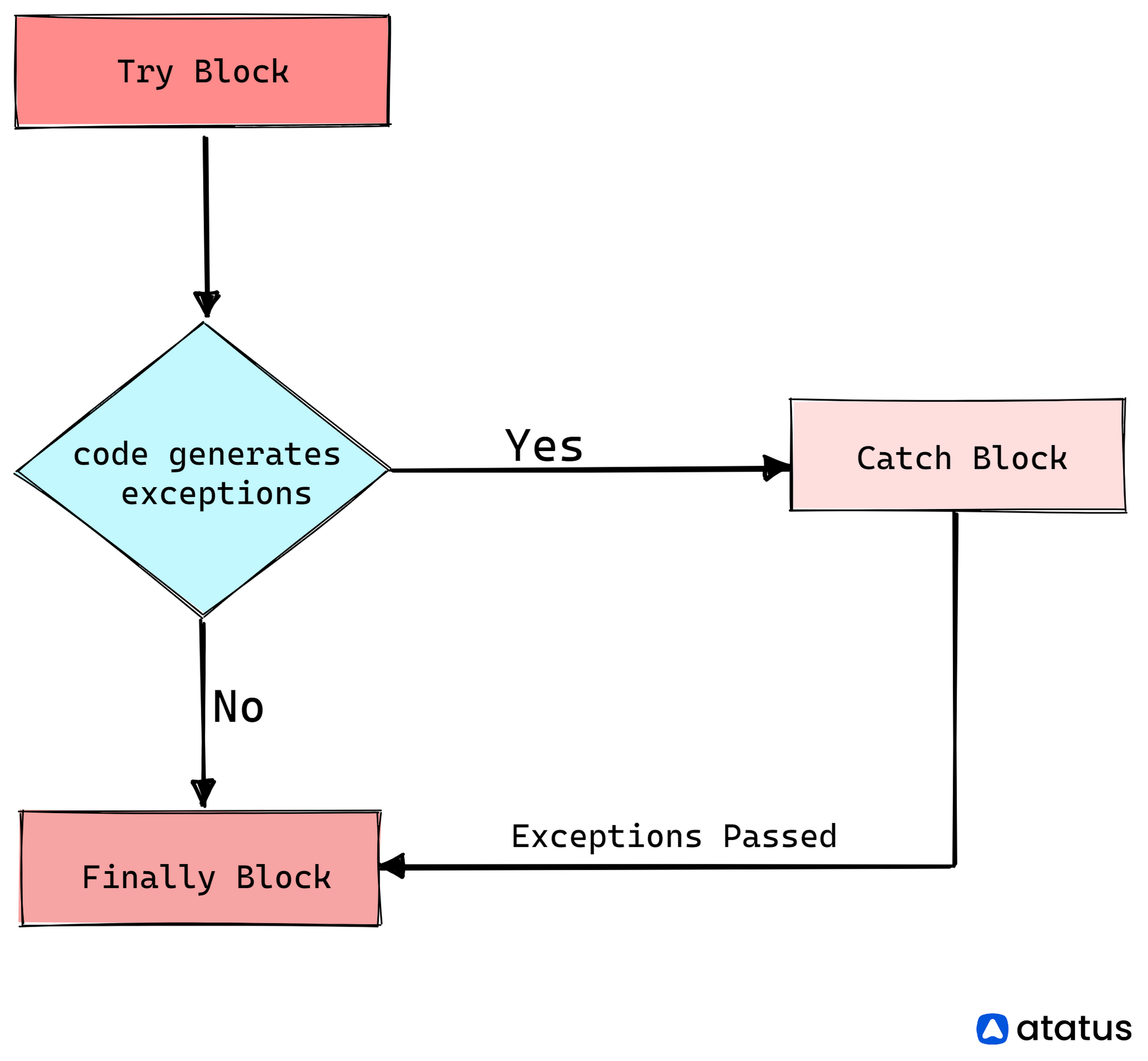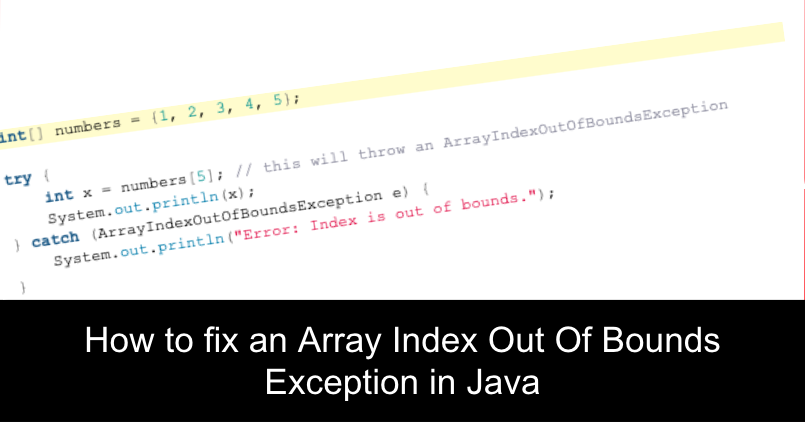Antwort How do you handle exceptions without catch? Weitere Antworten – How do you handle exceptions without try catch

The throws keyword is used for exception handling without try & catch block. It specifies the exceptions that a method can throw to the caller and does not handle itself.If an exception is thrown from the try block, even when there's no catch block to handle the exception, the finally block still executes, in which case the exception is still thrown immediately after the finally block finishes executing.What happens if an exception is not caught If an exception is not caught (with a catch block), the runtime system will abort the program (i.e. crash) and an exception message will print to the console. The message typically includes: name of exception type.
How do you handle task exceptions : Task Exceptions and How to Manage Them
- View the tasks modified by team members that caused exceptions.
- View overdue tasks that caused exceptions.
- Accept or decline the proposed changes for individual tasks.
- Preview the impact of accepting exceptions for a single task on the project schedule.
What are the 2 ways I can handle exception
How to Handle an Exception. Java provides two different options to handle an exception. You can either use the try-catch-finally approach to handle all kinds of exceptions. Or you can use the try-with-resource approach which allows an easier cleanup process for resources.
Is it possible to use try without catch : In the Java language, you can use a try block without a catch block but you can't use the catch block without a try block.
It is only good practice to catch a specific exception if it can actually be handled by the catch block. Very often, programmers assume that the fault can be handled at all, close to the point of occurrence. This is often wrong.

It's sometimes better to catch a standard exception and to wrap it into a custom one. A typical example for such an exception is an application or framework specific business exception. That allows you to add additional information and you can also implement a special handling for your exception class.
Is it necessary to catch exceptions
The only reasons why a method should have a catch and rethrow mechanism are: You want to convert one exception to a different one that is more meaningful to the caller above. You want to add extra information to the exception. You need a catch clause to clean up resources that would be leaked without one.You should only catch an exception that you plan to handle or perform some action when it happens. There are times where you want to perform an action on an exception but re-throw the exception so something downstream can deal with it.Throw early and handle exceptions late
As soon as an exception condition happens in your code, throw an Exception. Don't wait for any additional lines of code to run before you terminate execution of the method you are in. The function to catch exceptions should go toward the end of a method.

Exceptions and overriding
- Parent's method doesn't throw any exception. -> Overridden method can throw no exception.
- Parent's method throws unchecked exception. -> Overridden method can throw no exception.
- Parent's method throws checked exception. -> Overridden method can throw no exception.
What are the 3 blocks used to handle exception : The "catch" block is used to handle the exception. It must be preceded by try block which means we can't use catch block alone. It can be followed by finally block later. The "finally" block is used to execute the necessary code of the program.
Can we use if-else instead of try catch in Java : try/catch is used to handle exceptions. So use try/catch to handle exceptions, not “normal” flow of control. You can use if/else inside of the catch block if you need to.
Why not use if-else instead of try catch
In 'if-else' the conditions and the codes inside the blocks are got mixed, so that it becomes unreadable if there is many 'if-else' blocks. In 'try-catch' the codes to handle the exceptions and what exception to be handled, that are easily readable. In 'if-else', we have one else block corresponding to one if block.

It is only good practice to catch a specific exception if it can actually be handled by the catch block. Very often, programmers assume that the fault can be handled at all, close to the point of occurrence. This is often wrong.Exceptions are a rare event, so the normal program shouldn't pay for them. Also, exceptions from anything other than error conditions are quite confusing to the user of your class or function.
Should we avoid try catch : Try-catch is best used in parts of your code when you think mistakes will occur that are out of your control for whatever reason. 2. When Should You Avoid Using Try-Catch If you know an error is likely to happen, you shouldn't use the try-catch statement since you'd rather debug the problem than disguise it.




